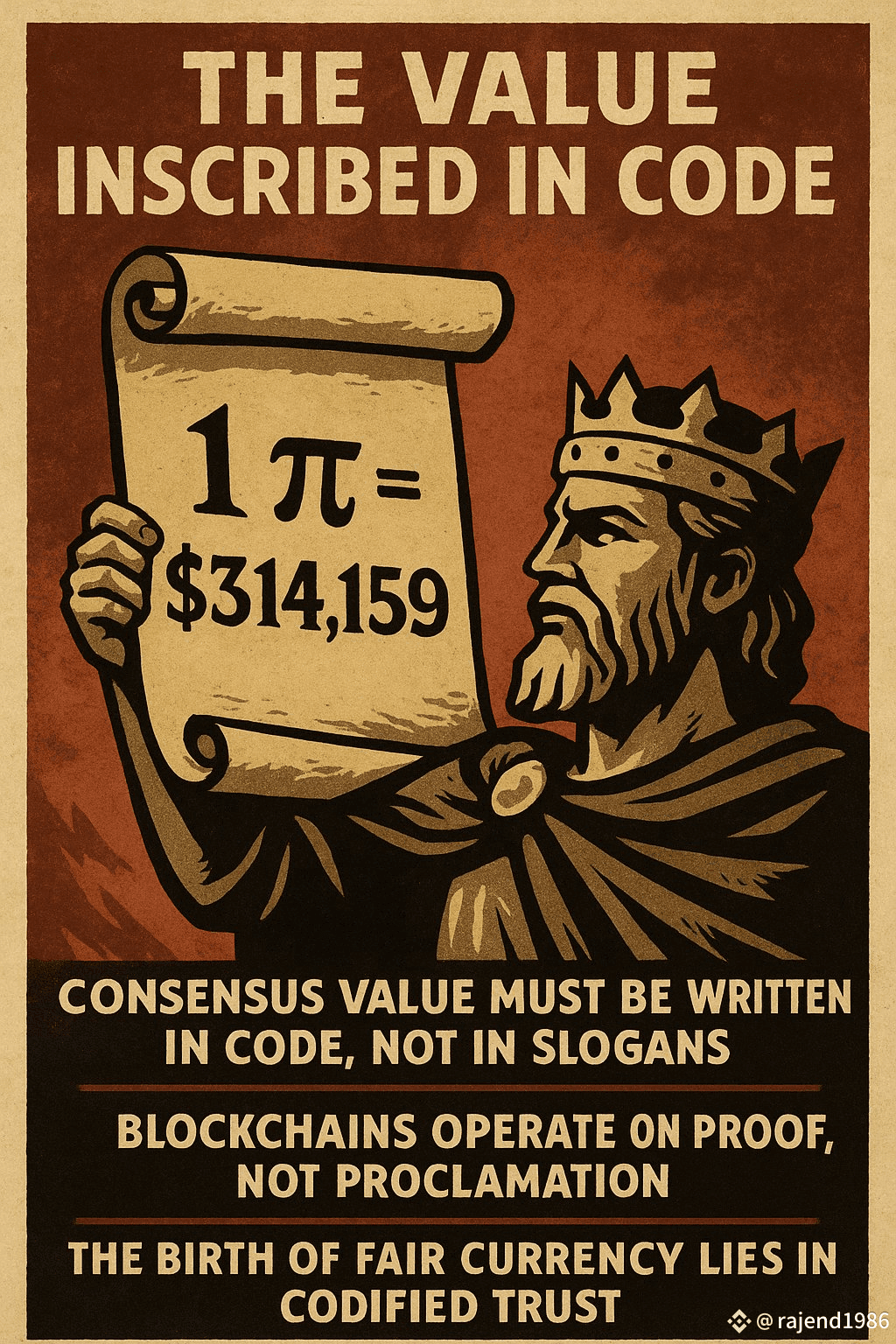The Value Inscribed in Code” — A Declaration of Pi’s True Worth
Consensus value must be written in code, not in slogans
Blockchains operate on proof, not proclamation
The birth of fair currency lies in codified trust
The decision of King Nicolas, engraved in the history of global money

1. Prologue: A New Civilization Awakens
In a distant age, a new civilization was rising on Earth.
At the heart of this civilization was a mystical currency — Pi (π) —
not born of gold or decree, but of human labor and verified contribution.
Its users were called Pioneers, and among them grew a vibrant network.
Yet as they transacted in this new economy, one question echoed endlessly:
> “How much is one Pi worth?”
To this, some Pioneers confidently responded with community slogans:
> “We have agreed! 1 Pi equals $314,159!”
> “Consensus value is all that matters!”
But as time passed, and transactions multiplied,
those words began to fracture under the weight of ambiguity.
2. “What Is the Value of 1 Pi?”
### — The Unending Birthplace of Disputes
* Pioneer A sold goods for 10 Pi, believing 1 Pi = $10.
* Pioneer B accepted the goods, but later claimed,
> “No, 1 Pi was $5. I demand half of it back.”
* Witness C sighed, saying:
> “If there’s no proof of consensus, it was never a currency to begin with.”
This is the fatal flaw of value by spoken consensus.
Words vanish in the air. Memories distort. Intentions clash.
And most importantly — blockchains require proof, not poetry.
3. The Decree of King Nicolas: “Consensus Must Be Written in Code”
As disputes spiraled, the sovereign of the Pi Kingdom —
King Nicolas, the Coder King — made a historic proclamation:
> “A real currency must be founded on defined value.
> Not on slogans, but on code. Not on emotion, but on constants.”
He ordered that the Global Consensus Value (GCV) —
such as 1 Pi = $314,159 — be hardcoded into every utility app and blockchain layer,
as a network-wide global constant.
Henceforth, every transaction would carry with it a mathematical certainty,
and no Pioneer could ever say,
> “I didn’t know the value.”
4. And Thus, Pi…
No longer moved by slogans.
Every utility was now synchronized to the declared constant.
Every transaction became a one-way ticket — no returns, no confusion.
And over time, Pi was never forged, never debased, never broken.
Instead, it stood as the most universally trusted currency of humanity for millennia.
Final Reflection:
> **A currency shouted in slogans will birth division.
> But a currency etched in code will birth eternal trust.**
The true consensus of Pi is not in declarations — but in decentralized design,
not in memory — but in immutable record,
not in community slogans — but in global constants on chain.
